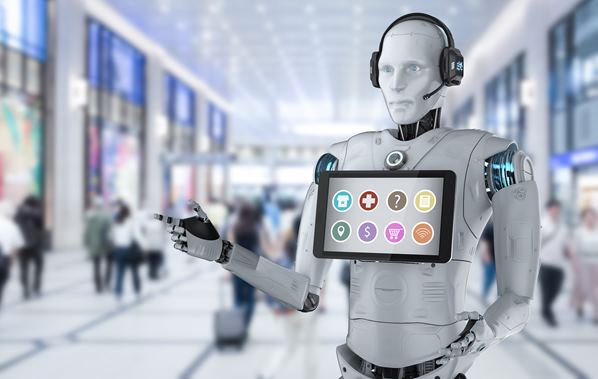
Kate Pioryshkina, Sales Manager at Iflexion takes a close look at how AI is transforming the ecommerce customer experience.
Many online retailers are already making use of the AI capabilities built into ecommerce platforms (for example, SAP Customer Experience or Salesforce Commerce Cloud). Personalization, customer relationship management, and inventory control are some retail elements benefitting from AI today. It means that AI isn’t just an industry buzzword, it’s an industry must-have.
In spite of the fact that AI is actually transforming ecommerce, AI strategies for digital retailers are among the worst-defined tech topics. The relevant skill sets are rather scarce, which makes businesses seek AI consulting to move forward in their “intelligent” direction.
For now, AI in ecommerce is used primarily for customer experience and personalization purposes. However, the scope of possibilities is much broader—AI is also transforming back-office activities, such as customer data analysis and business process optimization.
Let’s take a closer look at how AI is impacting the ecommerce customer experience. In some ways, it comes up as more effective than any human sales assistant.
More Personal Than a Person?
To see how AI-based personalization works, let’s look at SAP Customer Experience and its recommendation engine. It uses data mining to help suppliers and retailers upsell, cross-sell, and encourage impulse purchases. With an engine like this behind your ecommerce store, a customer looking at a specific product can be offered complementary or related products tailored to their individual tastes, in real time.
These recommendations are based not on general predefined rules (although programmed rules do play a part in the process), but on the previous interactions between the customer and the brand.
As AI personalization software learns more with every new transaction, recommendations presented to returning customers become increasingly accurate over time. Personal recommendations like this would be impossible for humans to achieve, even in a brick-and-mortar retail environment with a small product range, let alone when an online catalog comprises hundreds or even thousands of SKUs.
Beyond Personalization
But with platforms like SAP Customer Experience costing anything upward of $50,000, do AI features represent real value for your business, or are they just nice-to-haves, with their importance inflated by hype?
Well, according to Gartner, by 2020 over 15% of all customer interactions globally will be handled by AI, an increase of 400% from 2017. It shouldn’t come as a surprise—14% of organizations employ AI today, and nearly 50% plan to do so in 2020. If you take such stats seriously, artificial intelligence seems to be something way more serious than just a fancy gimmick.
Of course, there is more to creating a great customer experience than making it personalized, and the good news is that AI can make online shopping more intuitive—and a whole lot more convenient. Let’s take an example of an AI-based conversational agent (or, simply, a chatbot).
This is a computer program that uses natural language processing (NLP) techniques to analyze text queries and respond to them in a human-like manner. To achieve this goal, rule-based chatbots use simple sets of ready-made questions and answers, while AI-based chatbots actually learn on huge sets of real textual information to respond to rather complex and unexpected questions in the most natural way (although they still have some limitations).
Perhaps a hypothetical scenario, based on what an NLP-enabled chatbot might accomplish, will help to highlight the benefits of artificial intelligence in ecommerce.
The Chatbot Scenario
A shopper visits your ecommerce store looking for a particular item. Instead of picking through a tag cloud or typing in keywords, the customer starts a conversation with a chatbot.
The chatbot instantly presents the shopper with a range of available items that closely match the shopper’s description. Images, prices, product summaries, and customer reviews are right there in front of the shopper’s eyes.
With the item placed in the customer’s shopping cart, the chatbot ventures some personalized recommendations for complementary items. The customer adds one of those items to her shopping cart after the bot tells her a personal discount is applicable because this is her tenth store visit this year.
Before finalizing her purchase, the shopper realizes she has a couple of questions about the item she’s buying. The chatbot answers her first question, but the second is too complex for an electronic assistant to answer. The chatbot seamlessly passes the customer’s chat session to a live agent, who resolves the query and transfers the customer back to the chatbot.
Finally, the chatbot checks out the customer’s order and accepts online payment. The most amazing part? The customer completed the entire process on her phone while riding the train home from work.
The customer in this scenario isn’t the only one who reaps the benefits of AI. The retailer is able to:
• Capture a sale and increase its value
• Gain some new data about the customer, products, and sales channel (mobile in this case)
• Minimize the need for human effort in providing customer support
AI in the Ecommerce Supply Chain
While your customers are enjoying a futuristic online shopping experience, AI can also help you stay on top of your business and its supply chain. For example, by mining inventory, sales, and purchasing data and applying machine learning to understand the patterns, an AI solution integrated with your ERP, WMS, and ecommerce software can support the transition from reactive to proactive inventory management.
By using AI to predict and forecast requirements even more precisely, your company stands to save money and time and improve stock availability by optimizing order patterns. So again, it is a win-win for your business and customers.
What’s good for your customers is also good for you as a buyer. As artificial intelligence gains adoption in the B2B environment, there will come a time when your company can benefit from AI functions on both the supply and demand sides.
In fact, there may soon be no need for any manual purchasing processes whatsoever, as another element of AI technology—machine-to-machine communication—gets more sophisticated.
Artificial Intelligence in Ecommerce: Beyond the Hype
Whether applied to personalization, customer service, supply chain management, or business optimization, artificial intelligence adds up to real advantages for ecommerce operators.
AI is in the process of disrupting and transforming ecommerce, and yes, this is just the beginning. You can sit back for a while and see where it will go, or you can get onboard and go with it.
Whatever you do though, don’t wave it off as one of the latest buzzwords, because that ship already sailed—and some of your competitors may well be on it.
About the Author
 Kate Pioryshkina is a sales manager at Iflexion. She has over eight years of experience in IT, negotiating countless development projects and an eye for bottlenecks in development that modern businesses struggle to overcome. This skill allows her to identify specific business pain points and allocate the most appropriate resources from iflexion’s talented pool of developers.
Kate Pioryshkina is a sales manager at Iflexion. She has over eight years of experience in IT, negotiating countless development projects and an eye for bottlenecks in development that modern businesses struggle to overcome. This skill allows her to identify specific business pain points and allocate the most appropriate resources from iflexion’s talented pool of developers.
‘Exceeding expectations’ is her professional motto. Kate has the global experience necessary to understand cultural nuances of any project: locale, target audience, and goals. When it’s ‘go time’ there’s no stone left unturned. But outside of work, she loves to travel, explore new destinations, ideas, cultures, and technologies. She’s also a film buff who enjoys a good movie.




